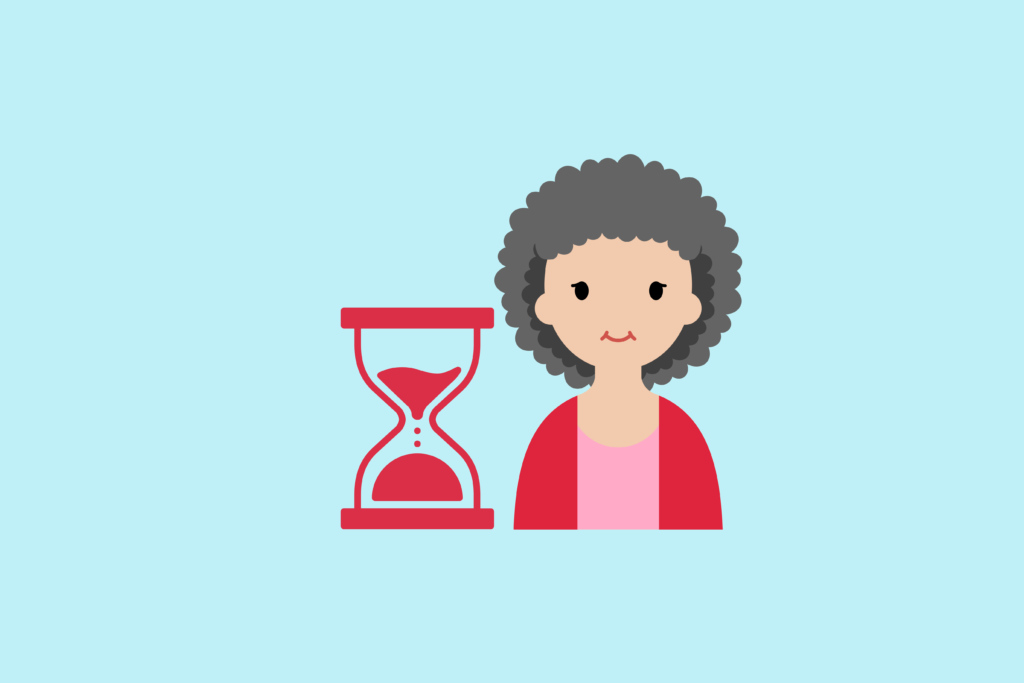The reproductive health for women in their 40s and 50s revolves around the menopause transition. It’s a natural period in the lives of women in which the female body changes from fertile to no longer fertile. In Dutch, the words ‘overgang’ (transition) and ‘menopauze’ (menopause) are used interchangeably. However, they are not quite the same. The ‘overgang’ or transition refers to the years around the last period, whereas ‘menopauze’ menopause refers to the last period.
Some stats
- On average, women are 51 years old when they have their last menstruation
- The menopause transition can begin when you are between 40 and 60 years old
- 1 in 100 women go into menopause too early, before they are 40 years old
- The menopause transition is experienced by 1.5 million women each year
- More than 1 in 3 working women in the menopause transition say that due to the symptoms they experience limitations in functioning at work. But less than half of this group who experience disabilities discuss their complaints at work.
How does the transition come about?
Before we go into the symptoms of the menopause transition, I would like to discuss what this transition is about. Every woman has a certain number of eggs. Every month, the rising levels of the hormone estrogen cause the ovary to develop and release an egg. This is called ovulation. Between the age of 40 and 60, a woman’s eggs are used up or the eggs don’t ripen anymore. So, the eggs are not released from the ovary. Since levels of estrogen are dropping, a woman will menstruate less frequently. Also, the heat center of your brain regulates your temperature. That heat center has to get used to less estrogen. The body sometimes suddenly receives signals that it needs to warm up, while it is not. The blood vessels of the skin will be more open. This gives a warm feeling, redness, and sweating.
Symptoms
- 8 in 10 women has hot flashes
- Face, neck, and chest might turn red
- There is more or less time between your periods than you were used to
- Blood loss can be more or less
- Have a longer or shorter period
- The skin of the vagina becomes thinner. This can cause itching, dryness, or increased moisture and mucus.
- It takes longer for the vagina to become moist when a woman feels like having sex
Being younger than 40 and experiencing menopausal transition can be caused by:
- Something hereditary, such as an error in the genes
- Chemotherapy
- Removal of ovaries
- Inflammation of the adrenal gland
What do women say?
I have interviewed 5 women about the menopausal transition. Some of the symptoms that they experienced are sweating, restless sleep, weight gain, mood swings, and bleeding excessively. Two out of five women that I have interviewed mentioned that they were in transition when they were younger than 40. Interestingly, both of them mention the loss of a parent as a potential cause for early transition as it started shortly after. In general, it is known less money goes into the research on women’s health but I think that this is an area that should be researched thoroughly. When asked about whether women felt comfortable mentioning menopause symptoms in the workplace, 3 women indicated that they mentioned it to their manager or colleagues. They responded neutrally or understandingly. One woman felt limited in expressing what she was going through because of being new to the team and not having a permanent contract. Another woman didn’t feel comfortable talking about this topic in the workplace. Their advice on menopause and the workplace sounds like this:
“I think just tell and honestly say what bothers you.”
“My advice is that there should be some awareness that women possibly suffer from complaints that you do not like to talk about.”
“For me, this is a topic that should be normal and we should also approach it that way. I mean, I was young and that’s less common, but still. Every woman goes through this sooner or later and it shouldn’t be such a big deal to discuss this.”
One woman recommends reading ‘Oomen stroomt over: hoe overleef ik de overgang’ written by Francine Oomen. This book is written in Dutch.
The menopause transition is a natural phase in the lives of women. I hope there will be more attention and openness to discussing this topic in the workplace. If you want to know more about this topic, reading books and listening to podcasts is a good place to start. Let me know if you have any recommendations. So, I can put them on the website, and hopefully, it will help other women.
A major thank you to the amazing women who were willing to share their stories!
Sources used for this article:
Werken tijdens de overgang | RIVM
Menopausal Symptoms and Their Management – PMC (nih.gov)
Ik ben in de overgang | Thuisarts.nl
Klachten overgang (menopauze) (isala.nl)

